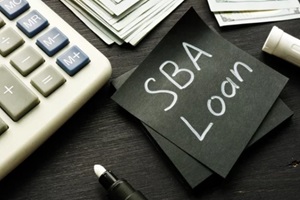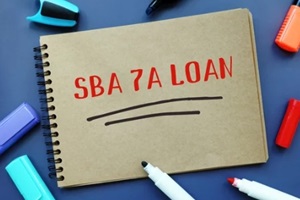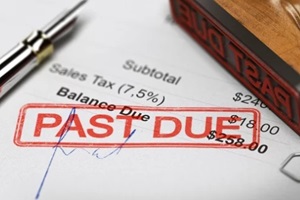 Small business owners who are unable to obtain private funding may qualify for SBA loans. Since the federal government backs these loans, they pose less risk for banks. However, borrowers must meet the minimum credit score requirements to obtain financing from SBA-approved lenders.
Small business owners who are unable to obtain private funding may qualify for SBA loans. Since the federal government backs these loans, they pose less risk for banks. However, borrowers must meet the minimum credit score requirements to obtain financing from SBA-approved lenders.
In this article, we will explain the role of credit scores in Maryland SBA loan approval, including steps you can take to improve your credit if needed.
How Lenders Assess for Creditworthiness
Lenders consider numerous factors before approving or denying SBA loans. The personal credit score is one of the most valuable elements since it illustrates the applicant’s payment history and ability to repay the loan.
FICO credit scores range from 300-850 and are based on the following factors:
- Payment history
- Credit utilization
- Length of credit history
- Credit mix
- New credit
Lenders also use the FICO Small Business Scoring Service (SBSS) to assess creditworthiness for established businesses. SBSS scores run from 0-300 and are based on the following information:
- Personal credit reports/scores of the principal applicants
- Business credit reports
- Data supplied on the loan application
- Financial information related to the business
Along with the credit score, lenders evaluate the collateral, available cash, and annual revenue of the business. Additionally, lenders consider the company’s time in business, with many requiring a minimum of two years for approval although, it is possible to obtain an SBA loan as a startup.
Credit Score Requirement for SBA Loans in Maryland
Since lenders set the criteria for SBA loans, there is no specific personal credit score requirement. Typically, lenders approve borrowers with credit scores of 680 or higher, with lower interest rates available for those with better credit. Some lenders will still approve borrowers with credit scores as low as 600 depending on the SBA loan product.
However, for the SBSS, the SBA requires that applicants have a minimum score of 155. This is the minimum, with many lenders only approving applicants with SBSS scores of 160 and above.
Credit Score Requirements for Different SBA Loans
Even though lenders do not follow a standard guideline for credit scores, many share the same criteria. Take a closer look at the typical credit score requirements for different types of SBA loans.
SBA 7(a) Loans – 650 Minimum Credit Score
 SBA 7(a) loans provide businesses with working capital or funds for refinancing current debt, purchasing or improving real estate, and buying machinery and equipment.
SBA 7(a) loans provide businesses with working capital or funds for refinancing current debt, purchasing or improving real estate, and buying machinery and equipment.
Standard 7(a) loans can include as much as $5 million in funds, while 7(a) small loans are for borrowers who need up to $500,000. Requirements vary, but lenders typically only approve applicants with credit scores of 650 and above.
SBA Express Loans – 600 Minimum Credit Score
The SBA Express loan is a type of 7(a) loan that provides a lower guarantee from the SBA. In turn, lenders require less paperwork and provide faster funding. Applicants can request up to $500,000 and have a solid chance of approval if their credit score is 600 or higher.
SBA 504 Loans – 680 Minimum Credit Score
Businesses can receive up to $5.5 million in funding to purchase assets, such as facilities and land, with an SBA 504 loan. Typically, a third-party lender provides half of the funding, while 30%-40% comes from a Certified Development Company (CDC).
The borrower submits a downpayment to cover the remaining balance of the funding. Interested parties should have a credit score of at least 680 before applying.
SBA Microloans – 620 Minimum Credit Score
Business owners with credit scores of at least 620 can apply for microloans of up to $50,000. These loans are flexible, allowing borrowers to use the funds to buy supplies, inventory, and equipment or to access working capital.
Practical Steps to Improve Credit Profiles
If your credit score is too low to obtain an SBA loan, you can take steps to improve it. It usually takes six months to one year to see marked improvements in a credit score, but you can begin building your credit now.
Open a Business Bank Account
Business owners must separate their personal and business finances before applying for an SBA loan. This also helps companies establish their business credit profiles while building relationships with banks.
Work With Vendors Who Report to Credit Agencies
Companies can quickly build up their credit profiles by working with vendors who report to credit agencies. After entering into a credit agreement, businesses should make on-time payments to increase their credit scores. Also, it can be beneficial to make early payments when possible.
Pay Down Outstanding Debt
 Lenders are less likely to loan money to individuals and businesses with considerable outstanding debt. Business owners can overcome their debt with the snowball method.
Lenders are less likely to loan money to individuals and businesses with considerable outstanding debt. Business owners can overcome their debt with the snowball method.
First, list all the outstanding debts, starting with the smallest and ending with the largest. Then, put as much money as possible toward the smallest debt while making the minimum payments on the other debts.
After paying off the smallest debt, move to the next one and continue until all the debt is paid in full.
Diversify Your Credit Portfolio
Business owners should consider obtaining credit cards and other types of credit to improve their creditworthiness. While the credit mix only makes up 10% of personal FICO scores, it demonstrates to lenders that applicants have experience utilizing different types of credit.
Get Personal Assistance When Obtaining an SBA Loan
Business owners have different SBA loan options at their disposal but must meet specific credit requirements for approval. If you are unsure if your business qualifies or need help choosing the appropriate SBA loan, Woodsboro Bank is here to help.
Contact Woodsboro Bank today for one-on-one assistance. We can discuss your SBA loan options and creditworthiness before helping you take the steps needed to apply.